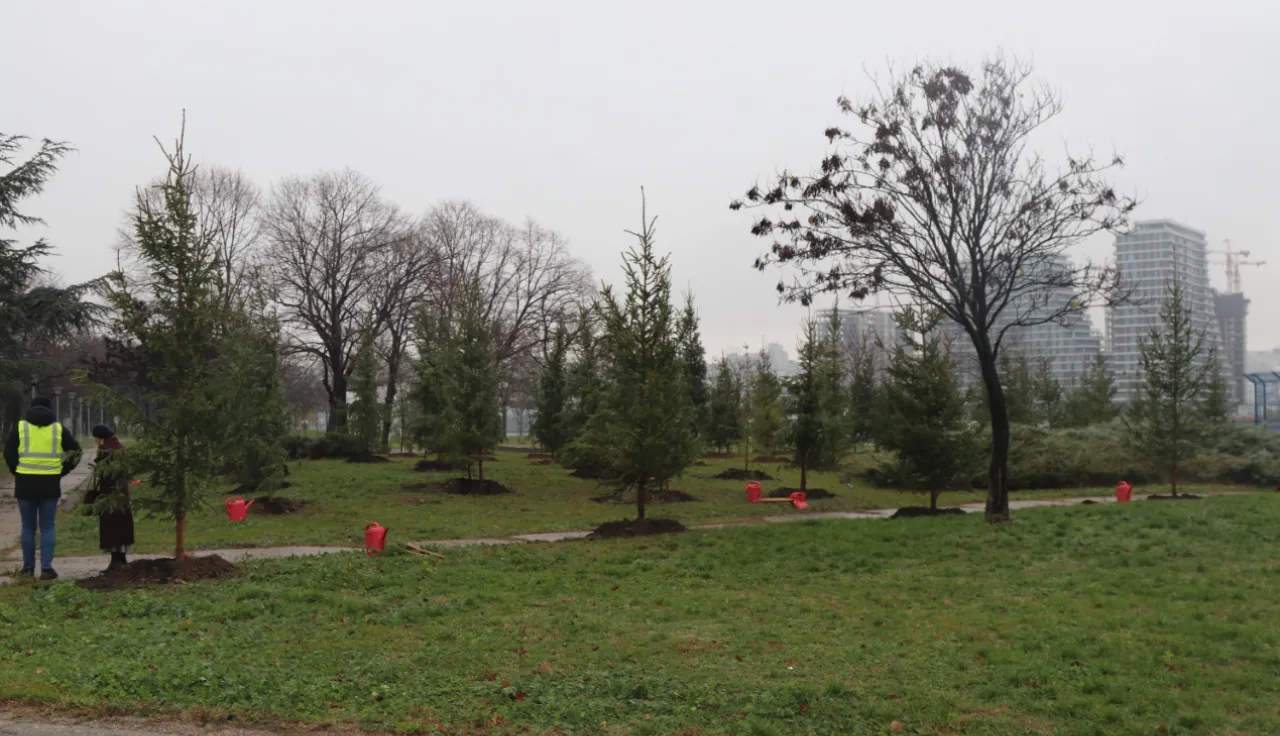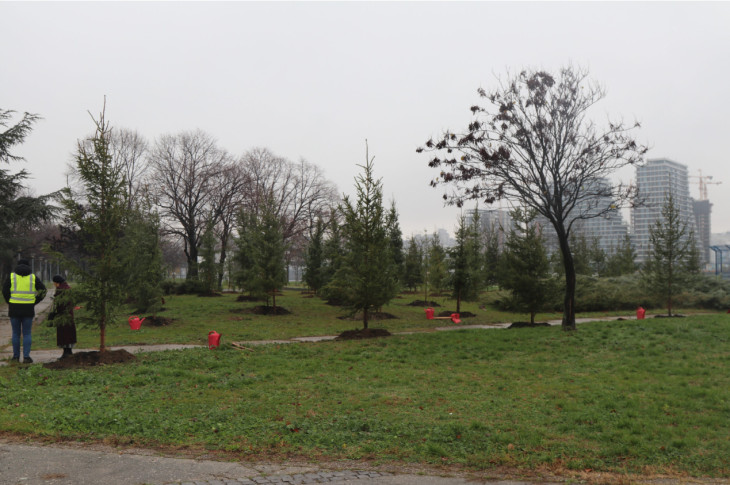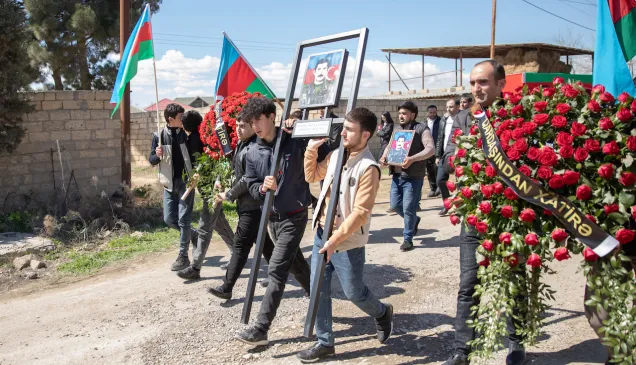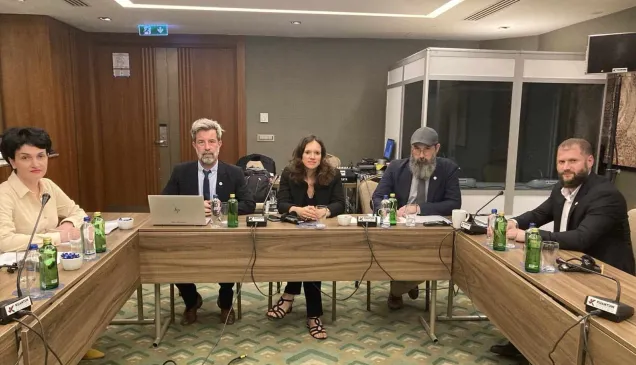Human Rights Day: Saplings planted to honour the missing

ICRC planted 63 saplings in memory of those missing since the 1990s conflict in former Yugoslavia
Belgrade (ICRC) — The Belgrade delegation of the International Committee of the Red Cross (ICRC), together with the families of missing people, continued the initiative of planting saplings in memory and honour of those who died and disappeared during the wars of the 1990s in the former Yugoslavia. In addition to the 100 saplings last year, 63 more were planted today along the left bank of Sava River in Belgrade.
"Today, when we mark Human Rights Day, we cannot help but talk about missing people and their families. On both legal and humanitarian grounds, the families have the right to find out what happened to their sons, brothers, fathers and spouses. Some families have been searching for three decades now."
"Therefore, I take this opportunity on behalf of the ICRC to urge government officials from the country and the region, as well as international organizations, to make additional efforts for obtaining information about as many missing people as possible and help clarify what happened to them," said Jelena Stijacic, the head of the ICRC's regional delegation in Belgrade.

ICRC planted saplings for the missing/ICRC
Thirty years after the outbreak of the conflict in the former Yugoslavia, some 10,000 people are still listed as missing. The rate of resolving the issue of missing people is unacceptably slow. Since the beginning of the year, 68 people have been identified, while last year only 45 were identified according the ICRC statistics.
In 2018, the ICRC launched a five-year plan to seek information in the archives of international organizations and military units present on the ground during the conflict in the former Yugoslavia. This information could lead to the discovery of gravesites to help speed up the process of getting closure in the remaining cases of missing people, given the acute humanitarian dimension of the issue.



